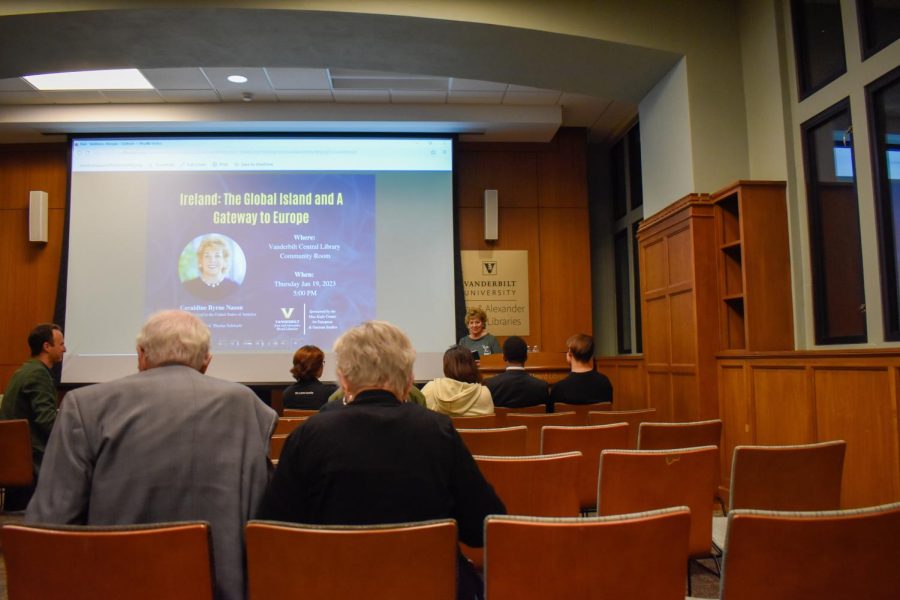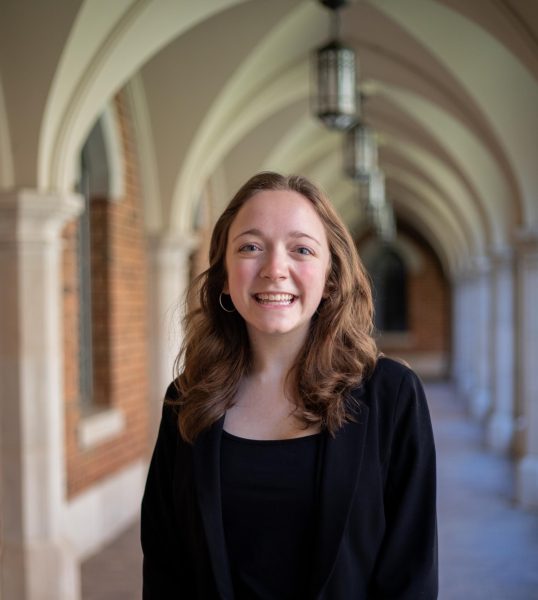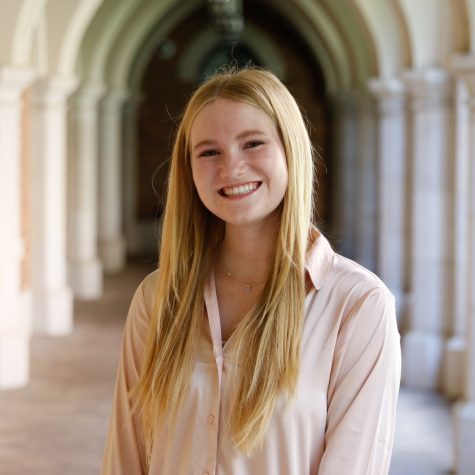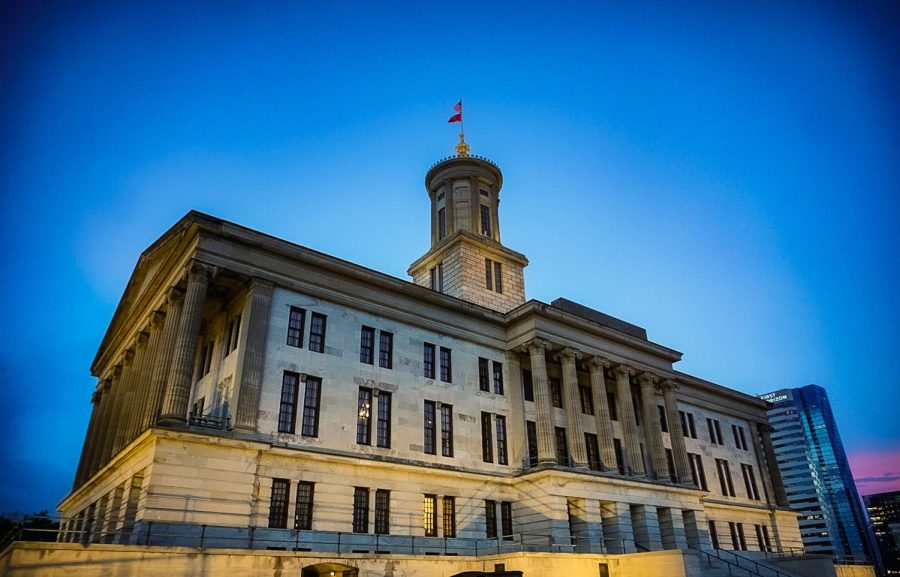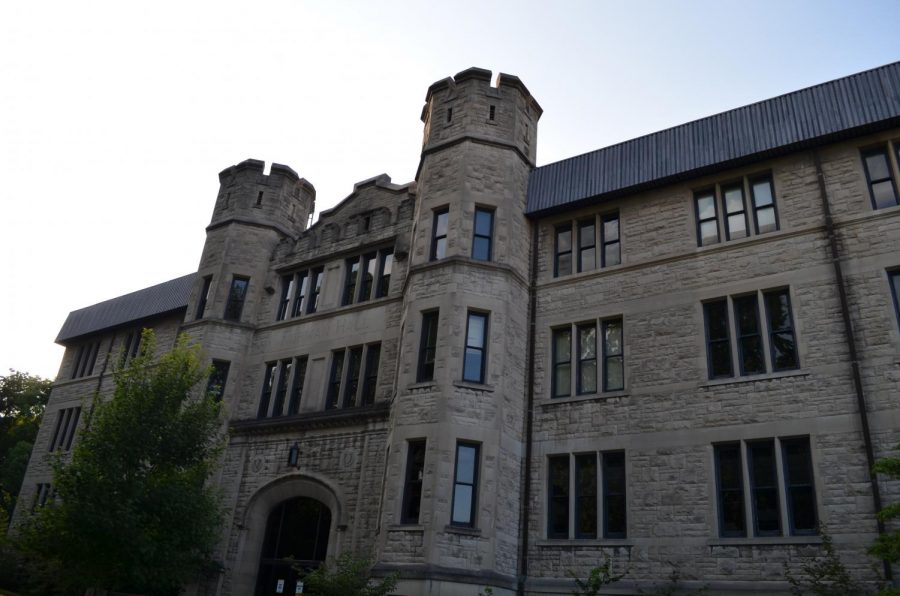Vanderbilt hosted the Ambassador of Ireland to the United States Geraldine Byrne Nason on Jan. 19. Nason spoke about Ireland’s relationship with the U.S. and the European Union, the United Nations Security Council and the ongoing Russia-Ukraine War.
The event was moderated by political science professor Thomas Schwartz, and Dean of the College of Arts & Science John Geer opened the event by emphasizing Chancellor Daniel Diermeier’s desire to bring guests from around the world to Vanderbilt to build an “international footprint.”
“We cannot be an elite university without having a serious global footprint,” Geer said.
Event and audience Q&A
Nason began the event by describing the relationship between the U.S. and Ireland as reciprocal. She said Ireland provides the U.S. with access to European markets and, in turn, the U.S. provides Ireland’s largest share of foreign direct investment. She also cited the U.S.’s involvement in the development of the Good Friday Agreement, which was signed in 1998 to end decades of violence in Northern Ireland.
“I think the sense of kinship between Ireland and America over the miles and certainly over generations has proved the ties that bind us,” Nason said. “The solidarity of Irish Americans played a central role in Ireland’s self determination as a nation.”
Nason then responded to critics who may doubt Ireland’s impact in the UN Security Council, especially due to the country’s small size and population.
“With my two years experience and my feisty Irish spirit, I turned that question right around and asked ‘If not us, then who?’” Nason said. “The Security Council needs countries like Ireland to step up, to raise our voices and, importantly, to disrupt the narratives of power and expediency.”
Nason also addressed the ongoing Russia-Ukraine War, calling Russia’s invasion of Ukraine “illegal” and “immoral.” She emphasized Ireland’s position as militarily neutral but expressed support for the Ukrainian people. Ireland has accepted over 70,000 Ukrainian refugees since February 2022.
“We have been absolutely steadfast in our political support for Ukraine, both in terms of the tough sanctions we have engaged in against Russia but also, importantly, in supporting Ukraine’s candidacy to the European Union,” Nason said. “Ireland has consistently advocated that Ukraine is part of our European family and belongs in the EU, and we will continue to say that.”
The Ambassador also responded to questions from the audience, including one from senior Safa Shahzad about Ireland’s foreign relations with non-European nations moving forward.
“As an international student coming from the UK, there’s a lot of similarities between the UK and Ireland,” Shahzad said. “It was great to interact with her, and I’m glad I got to ask about Ireland’s role in world politics beyond Europe.”
Shahzad added that she particularly enjoyed hearing Nason’s discussion of Brexit.
“Brexit was a bad idea to begin with, and it’s still a bad idea today,” Nason said. “It was a bad idea for the island of Ireland, wh[ich] we knew would be the most impacted by Brexit.”
This month marks the 50th anniversary of Ireland’s induction into the EU, and Nason stressed the nation’s appreciation for the organization throughout the event, citing it as a strong catalyst for the country’s development. According to Nason, Ireland’s GDP per capita was half that of the other EU member countries in 1973 but has grown to be double the average in the entire EU since then. In terms of social development, Ireland became one of the first nations to legalize same-sex marriage by popular vote in 2015, and the country elected its first female president in 1990.
“I would say that few events in Irish history have been so transformative as that decision to join the European Union,” Nason said.
Interview with The Hustler
In an interview after the event with The Hustler, Nason described the process of getting Ireland a seat on the Security Council as “intense.” As for Ireland’s goals on the council, she emphasized the country’s commitment to providing aid to developing countries while remaining militarily indifferent to conflict.
“We spoke [on the Security Council] with a very unadorned sense of who and what we are and that we are an independent country,” Nason said. “We’re not a member of any military alliance. We’re not politically neutral, but we’re independent. We’re a partner.”
Nason also discussed her motivations for becoming the Ambassador to the U.S., saying she wanted to be a part of the “unique” relationship between the U.S. and Ireland.
“I see that part of my responsibility is to look after Ireland’s economic interests here [in the U.S.],” Nason said. “I look after our cultural and political interests, the people to people, but I also see the United States as a critical partner in that vocation Ireland has as a global island — an effort to look out for others and to look beyond the horizons.”
Nason gave advice to aspiring young women interested in politics, and she spoke about her own inspiration, citing Mary Robinson, the first female president of Ireland. Robinson’s grassroots activism for climate change pushed Nason to follow in her footsteps, and Nason urged young people today to find their own inspiration in female activists.
“My advice is go for it. Get involved – be an activist,” Nason said. “Be on the streets. Be speaking out. Do not hesitate, have the courage to stand up and do it in good company.”
Nason concluded the interview by highlighting Nashville’s relationship with Ireland as Belfast’s “Sister City.” According to Nason, about a quarter of all U.S. imports from Ireland are consumed in Tennessee.
Nason said she specifically insisted on visiting Vanderbilt during her first trip to the American South due to its prestige and Nashville’s large Irish population. About 10% of Nashville’s population share Irish or Scots-Irish heritage.
“We’re looking at an institution like Vanderbilt as the heart of this new trajectory — this tremendous momentum behind Nashville and the region in general. We think that this is the kind of institution that we need to be talking to,” Nason said. “We want to open up those conversations. I absolutely plan to be back.”

